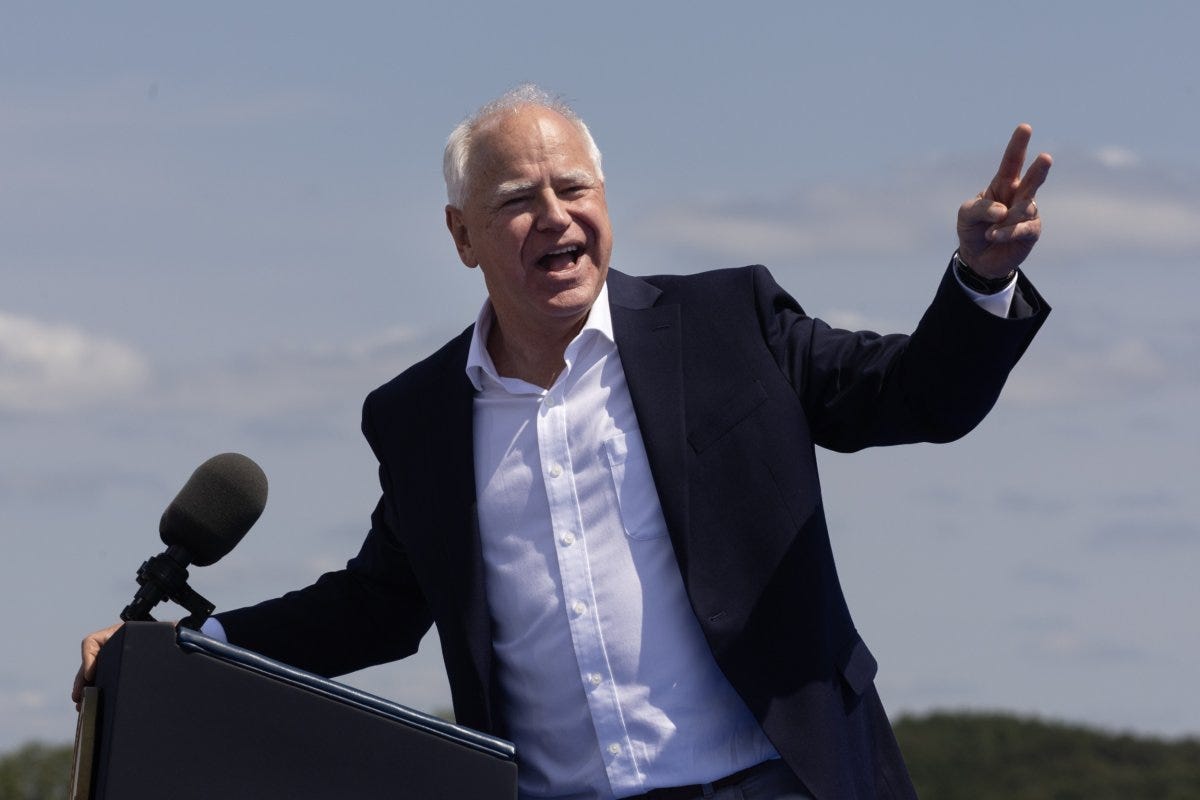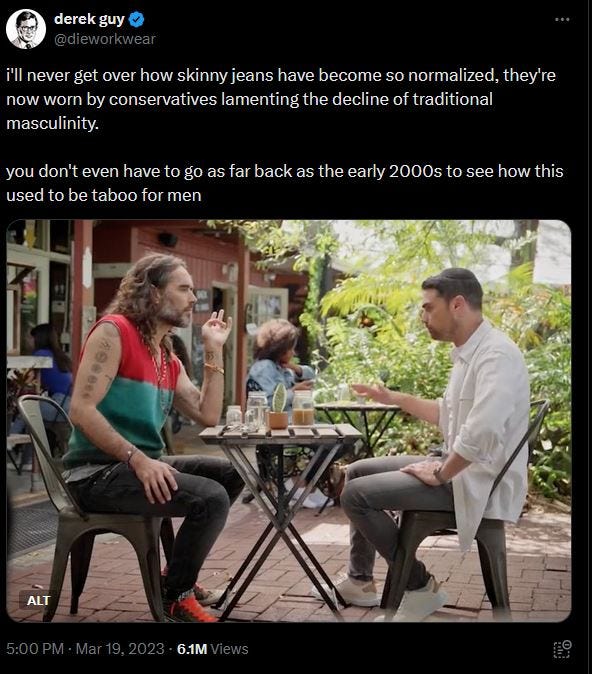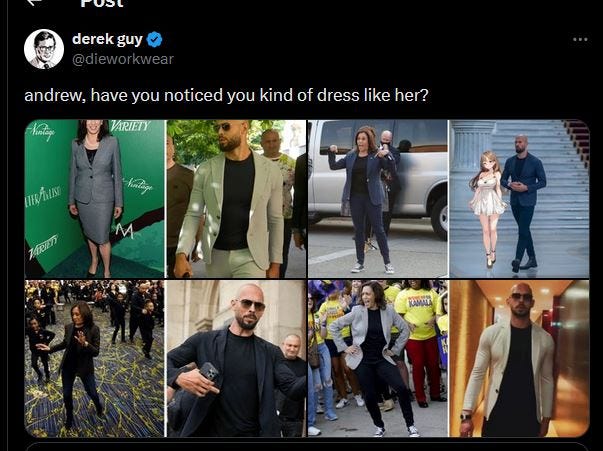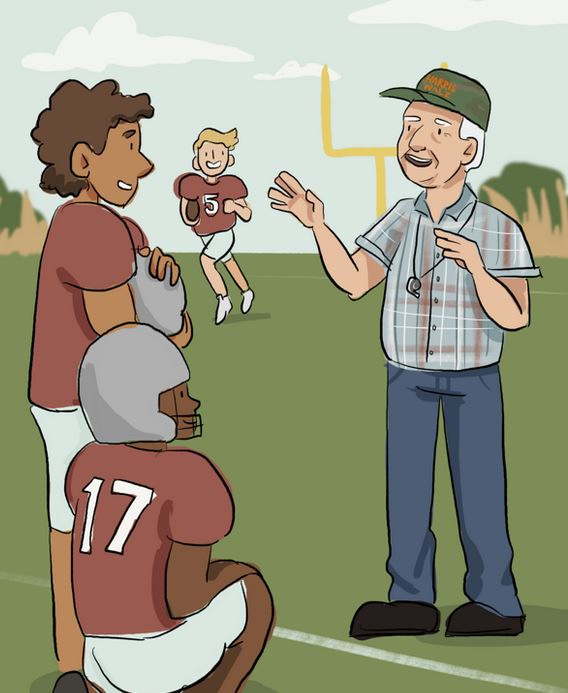I started paying attention to politics when I was about 16 years old, maybe younger. It was when there was a Canadian referendum that asked if Quebec should separate from Canada. I know it was much more complicated than that, but that’s what I took away from it.
But I was also old enough by the year 2000 to understand what was going on between George W Bush, and Al Gore. I don’t remember any policies, or if they were conservative or liberal or whatever, I remember that people thought George W was a good old boy who was kind of dumb but harmless. And that Al Gore was kind of a nerd.
This is the image that they portrayed for better or worse. It was their performance of masculinity, the traditional aw shucks, man of the earth masculinity. Or the buttoned down, educated, but not street smart masculinity.
In later years we got to know exactly what kind of man George W Bush was. But I wanted to paint this very simplified version of who they were to me. As a person that wasn’t American, didn’t know much about politics, and that if I were to vote in that election, this is what I would have to go by.
I’m certain I wasn’t the only one. Because I believe all politics is a showdown between different types of masculinity.
The question that a lot of voters have is not so much “what will this person do?” it’s “who is this person, and do I like them?” And if we were to distill it down it’s “what kind of masculinity do I like the most?”
To me, this has been the most important piece of a candidates strategy, more than policies, more than scandals, more than promises. “Do I like the masculinity you’re portraying right now?” will raise up more people and bring down just as many.
In the US election this has never been more prevalent and open as the vice president race between JD Vance and Tim Walz. Their masculinity that they perform has been used a defensive halo to portray their promise as a politician.
And I know in a few years time, i will be able to replace these name and I can use this article again. Because it will happen again.
Masculinity as a Story
One of the major ideas I have about gender identity but masculinity specifically, is that the way we look and think about each other’s gender identity is a part of a bigger story that has evolved from time to time. If we map the way the dominant masculinity type looks like, speaks like, and performs like, throughout time, it will look different at different stages. There are obviously some things that stay the same, but the way these men look like and talk like change.
These gender identities are part of a story we tell ourselves about men, and as time goes on, that story evolves, becomes complex, and has different drives, motivations, have different experiences and similarities.
You see this very clearly if you spend any time following “dieworkwear” or the men’s fashion guy on Twitter/X. I was aware of Derek Guy prior to his infamy on Twitter/X, mostly following the subreddit r/malefashionadvice. His posts would regularly show up and they were usually insightful pieces about the history of men’s clothing. Where they came from, why was it important, and where they were headed.
But I think he found his niche right now, being the historian and ombudsman of men’s fashion specially with politicians. And this has pissed people off. Especially right wing men, whose ire Derek points his gaze to.
One of his posts especially highlights the point of masculinity as a story. The one about skinny jeans:
There was a time when skinny jeans was thought of as the sign of a decline in masculine values. The same kind of rhetoric that Ben Shapiro and the like would happily talk about at length. Yet here they are wearing something that would’ve called them feminine only 15 years prior. Hell even proud misogynist Andrew Tate is wearing skinny jeans, and the same type of clothes Kamala Harris would wear.
Derek would proclaim that if they really cared about “traditional values” they would wear traditional clothes, and pay respect to them. Yet that doesn’t happen.
Because the story about skinny jeans is that they are now normal, in fact the story is that older men are the ones who wear them. Older men that are the vanguard of “traditional masculinity.” Funny how that is.
My point is that masculinity is not static, it’s complex. It changes for the best and sometimes for the worst. Its a product of the culture around it. It’s also a moving target. The most successful male politician will hit that moving target at the time, and move as the culture moves. Or better yet moves before the target.
What we react to as a public is masculinity that is popular, repulsive, or ahead of it’s time. And when election season comes, and people are on the ballot, a performance of masculinity is also on the ballot.
In fact, I can say pretty boldly that each election is not an election about policies, it’s an election about which masculinity is best suited for it’s time right now.
Aw Shucks v/s I’m right (even though I’m wrong)
So let’s talk about which masculinity is on the ballot in 2024.
Funnily enough it’s not about Kamala Harris and Donald Trump, it’s mostly about their Vice President picks: JD Vance’s bull in a china shop masculinity v/s Tim Walz Minnesota Football Dad masculinity. It’s so obvious that as soon as Harris announced her pick as VP in Walz, there was already articles talking about Walz’s positive masculinity we should embrace.
In 2016, it was very obvious to say that Clinton’s identity didn’t stick enough to fight Trump’s bravado masculinity. One that was so odious that in some circles in became appealing. It was a rejection to the fake nice guy masculinity that other liberals like Justin Trudeau, Emmanuel Macron, and others had. Earnestness would’ve beaten Trump. Obama had it. Clinton didn’t have it.
JD Vance is fake, he’s trying on the Trump masculinity and it looks like a bad suit on him. Right wingers, ever since Trump, have realized that being always in attack mode was the way to win. However, when JD Vance goes on attack, it seems like he doesn’t even believe what he’s saying. This right wing masculinity that was born out of the 4chan /pol forum looks truly cringe in person. Yet that’s what right wingers think will win. I don’t know if it will. It still might, but it looks different this time. Walz seems like the perfect counter to Vance’s bully style of masculinity. It doesn’t hurt that he was a football coach, one of most masculine identities you can have in America.
Walz also knew something about the right wing politics that’s spreading throughout the world that everyone knows, but until that moment was unsaid. That it was “weird.” He understood that Vance and the like performed the bully, and the only way to defeat a bully is to take away their power. Calling them “dangerous” or “evil” just gave them more power, calling them “weird” just made them defensive.
With Trump it became absolutely obvious that 2016 was a vote for masculinity, instead of a vote for policies. The issue is that we think it was only on the ballot on 2016, when it was always on the ballot. On every vote we make. Until patriarchy is defeated, it will always be on the ballot.
The football dad from Minnesota is the masculinity story that Americans are happy to read right now. I don’t know if it’s the right story though. I know Vance’s story is repulsive and I hate it, but I also don’t know how Walz’s story ends. I do remember liking Obama’s masculinity story (I still kind of do), but I also know some of the stuff he did in office was awful. I also bought Justin Trudeau’s masculinity story, and now I find it fake. This is the thing with stories, it keeps going, and we don’t know how it ends. So I will accept Walz’s story for right now and see what happens.
Americans are voting for the story that will get them through the next 4 years, and then they will have another election about the masculinity we want to see.








